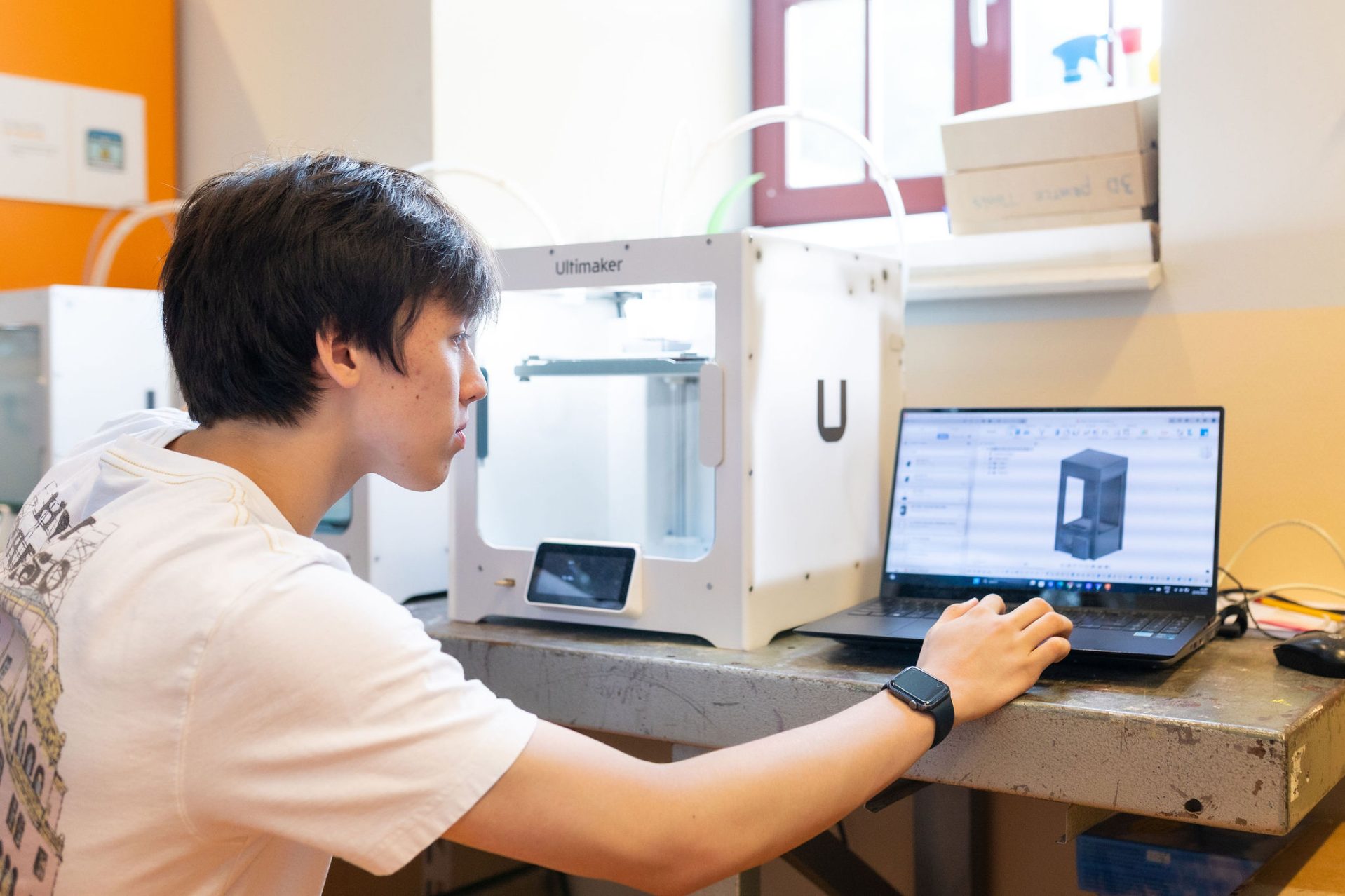
Learning Matters
School Library
The library constitutes an important part of the educational provision of the ISE. The library offers students and teachers a quiet and very pleasant learning environment. It has a stimulating influence on both staff and students who use it during study periods or lessons. Students of all years use the available materials and facilities to work on assignments, with or without the aid of computers, to study or just to read a book or a periodical. The library occupies a central area in the school. The Central Information desk, providing support for students and teachers and a work area for administrative activities, is situated in the Library.
The ISE library has a sizable collection of books, magazines and reference materials supported by up-to-date computer facilities for research and computer-assisted learning. In addition the library has netbooks for students to use. All netbooks can be used on the wireless educational network of the school and the Internet. Other ICT facilities include a scanner, printer and colour photocopier for the students to use. There is an automated catalogue and lending system.
More information can be found on the Library homepage here.
Learning Management Systems and Timetable
All students are given a school email address with which they can access the Learning Management Systems (LMS) and other educational resources used by the school.
The Secondary School uses Toddle as our primary LMS. Through Toddle, students and parents can access the curriculum overviews, see deadlines for tasks, submit assignments and projects, check their grades, and receive their report cards.
To access their timetable, students can log into SOM today.
Communicating Progress and Concerns
Student Update
The Student Update is to encourage collaboration between the teacher, the student and the parent(s) and create an opportunity for open communication between the teacher, the student and the parent(s)
The Student Update will inform by
- recognizing progress and effort
- encouraging improved learning habits
- addressing a challenge and offering support
- providing feedback on academic integrity
- notifying about an upcoming deadline or concern.
Bring Your Own Device and using Technology
The Secondary Department operates a Bring Your Own Device (BYOD) program, where students bring their own computer to school as their main technological tool for academic use. BYOD has grown widely in the educational setting with research showing an improvement in student accountability, growth in technology skills and the empowerment of student agency. This approach maximizes student agency and comfort with their device whilst allowing access to all the required software and mirrors the expectations of most Universities.
All students from MP1-DP2 must bring their own device to school for daily learning. The device must meet the requirements as outlined in the BYOD policy in order to fully participate in the learning process.
The school provides access to a filtered Wi-Fi Internet service, the BYOD wifi network. No other support, software or service will be provided by the school. This is beyond the scope of the ISE Devices policy, guidelines guidelines and student agreement.
Further details about BYOD can be found in the schools BYOD policy available on the school’s website.
Academic Integrity and Turnitin
As an IB World School, the ISE champions the principles of academic research and advocates ethical behaviour in the production and submission of authentic work. The ISE Secondary expects students to ethically use the ideas and work of others and promotes the concept of intellectual property. To that end, we support students in developing their ATL skills such as note-taking, referencing, researching, time-management and collaboration, so that they can feel confident in their abilities and become principled IB Learners.
Additionally, the school uses Turnitin, an electronic detection service, as a way to identify academic dishonesty but also as a teaching tool through which to promote good practice. Students are shown how it works and have opportunities to use it themselves.
For more information about academic malpractice in all its forms, including intentional plagiarism, unintentional plagiarism, collusion, the use of AI and other misconduct, as well as the school’s procedure for investigating potential incidents of misconduct, please refer to our Academic Integrity Policy.